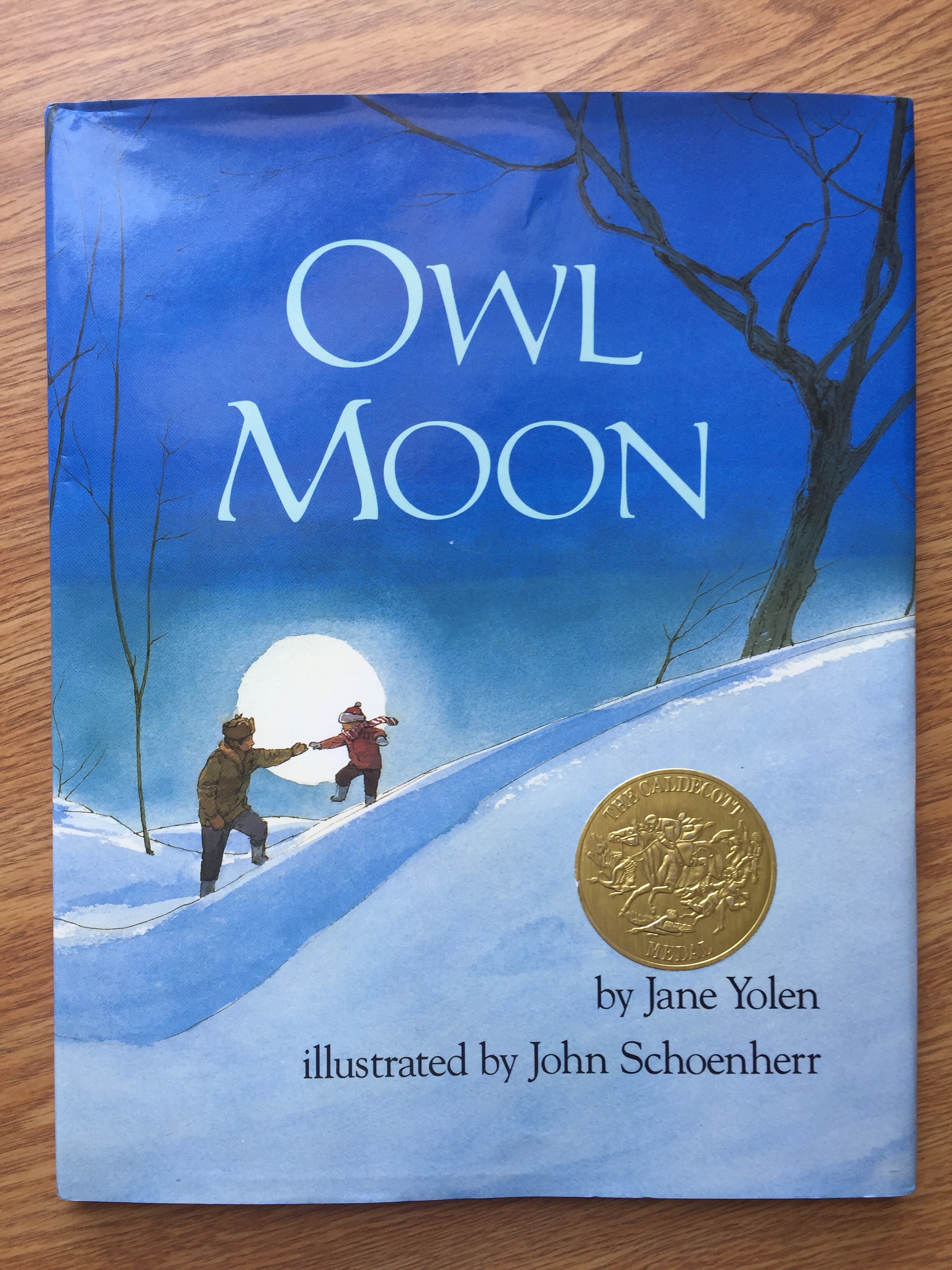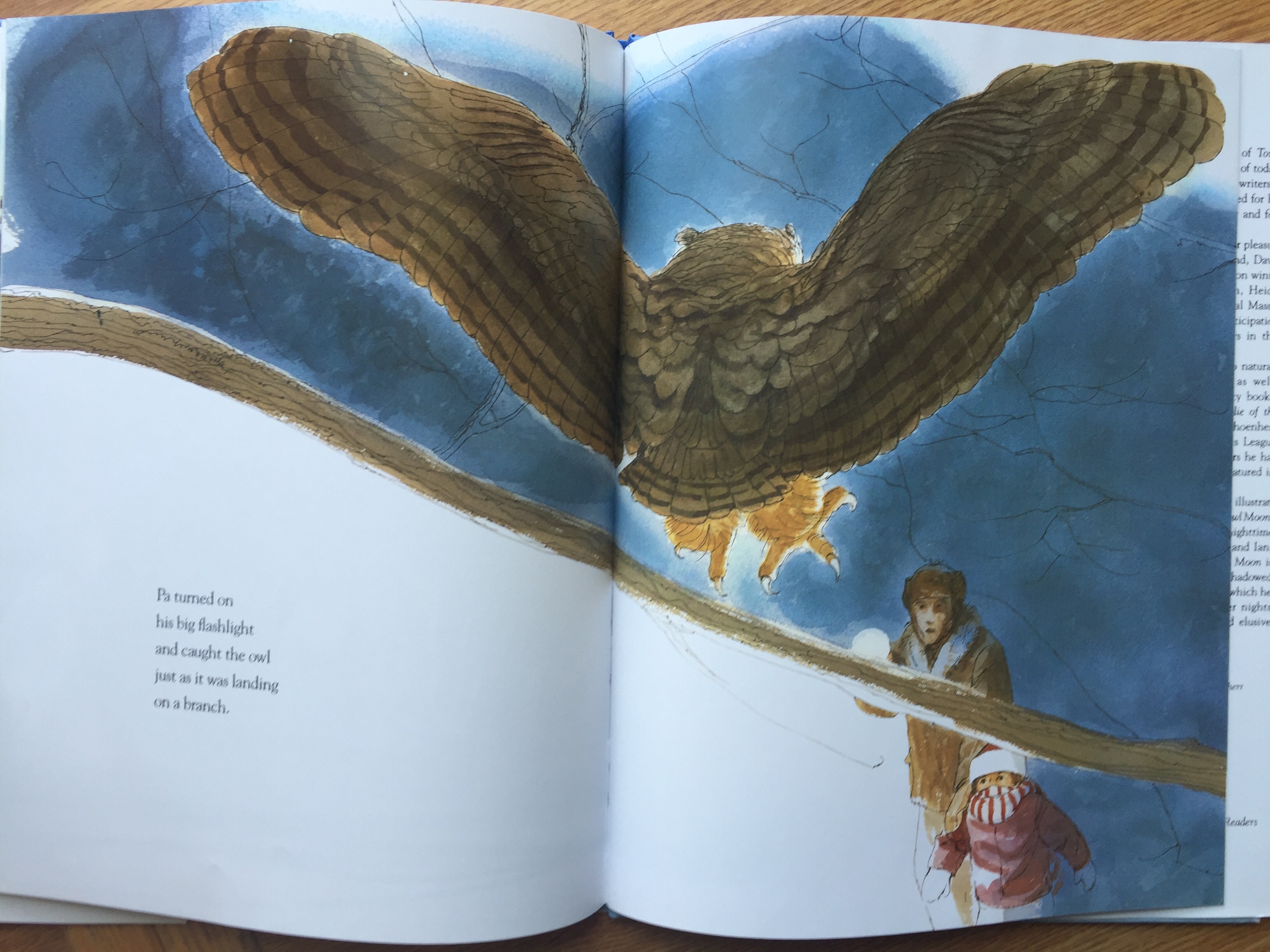
Author: Jane Yolen
Illustrator: John Schoenherr
Publisher and Year: Philomel Books 1987
Number of pages: 29
Genre: Poetry
Analysis:
Owl Moon is a Caldecott winner that tells the story of a girl who goes owling with her father. The book delves into her family’s tradition of owling and how this instance is the first time she gets to accompany her father. Late at night, they go into the forest in search of an owl and trek through the snow and through the trees. Her father intermittently does owl calls and eventually they encounter one.
This story serves as a window or a door into the world of owling, the world of nature, and the importance of family traditions. The illustrations are done in a watercolor style full of a balance of rich, dark colors and the stark white of the snow described by the narrator. Although the story takes place at night, the characters and their surroundings are illuminated in the moonlight to create a serene aesthetic. The text itself is written in a poetic style with flow akin to that of a child forming thoughts. The words are eloquently strung together to reinforce the importance of the event in the young girl’s mind. While the flow of the text is broken up into small lines and stanzas, the word choice shows a more adept writer who is writing in a more carefree manner.

Culturally, this book touches on the importance of family traditions and familial relationships. This one, seemingly simple, event had enough of an impact on the little girl that she retells the story. Overall, this book does not have much cultural value to it. While Owl Moon has beautiful, award winning illustrations, it does not have multicultural significance. The two main characters of the book are both white and there are no other people in the book. The text may have nice flow and beautiful word choice, but the story itself holds little cultural importance in a classroom. There are several activities that could be created from this book, but in order to ensure that a class does not exclude anyone, the activities would need to change from the inherent ideologies presented in the book. Instead of reinforcing the idea of a typical family being parents as being the primary caretaker, instead stress the importance of every family type. This may still exclude children who live with foster families so when discussing this book, be sure to specifically include them as well. Although problems may arise from teaching a lesson only with this book, Owl Moon could be paired with other more multicultural texts to discuss many family types and family traditions.
